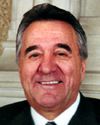Mr. Speaker, the minister talks about a solution when, in fact, she is keeping the workers in suspense by postponing cuts for a few months for lack of political courage. This is a fine example of Liberal compassion.
Will the minister admit that postponing EI cuts for a year is an admission of failure and that her reform is ridiculous and cannot be implemented in the regions without great hardship to workers and their families?













